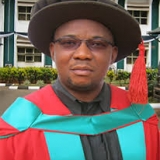Abstract
The Nigerian government’s recent initiative, “Electrifying Agriculture,” supports the rapid deployment of off-grid electricity solutions to transform food systems. Agriculture is the primary source of income for Taraba State residents. In rural communities, success of potential climate-smart agriculture interventions requires participation and acceptance of the community. This research article evaluates the socioeconomic needs and perception of hydropower solutions for three rural communities in Taraba State, Nigeria. The findings reveal a higher proportion of males (72.22%) than females, with majority (53.17%) of them having no formal education. Social facilities and services like roads, education and health institutions, water, electricity and communication, and public recreation facilities are generally available but poorly maintained. The majority of inhabitants depend on nearby rivers and commercial boreholes as major sources of water for domestic purposes, with 65.87% of the residents throwing solid wastes into the bush. Also, the major (98.41%) source of energy or fuel for cooking is firewood. On the basis of priority, the three most relevant personal and community needs identified for interventions are the provision of low-cost off-grid electricity (95.83%); primary health care clinics (84.13%) and farming inputs (83.33%), among others. A majority (90.48%) of the respondents agreed that installation of low-cost, off-grid water wheel generators will serve as an alternative to solve Taraba state’s energy challenges, ensure energy security and improve the economy, while 93.65% of them are willing to sustain off-grid water wheel generator in their communities if they are installed. The results further indicate that provision of security and surveillance to prevent stealing and vandalism using community vigilante (57.81%) is a viable way of sustaining the investment, even as a majority (77.22%) of them agreed that corruption is a challenge that can affect the sustainability of off-grid water wheel generators in the communities if not addressed.
